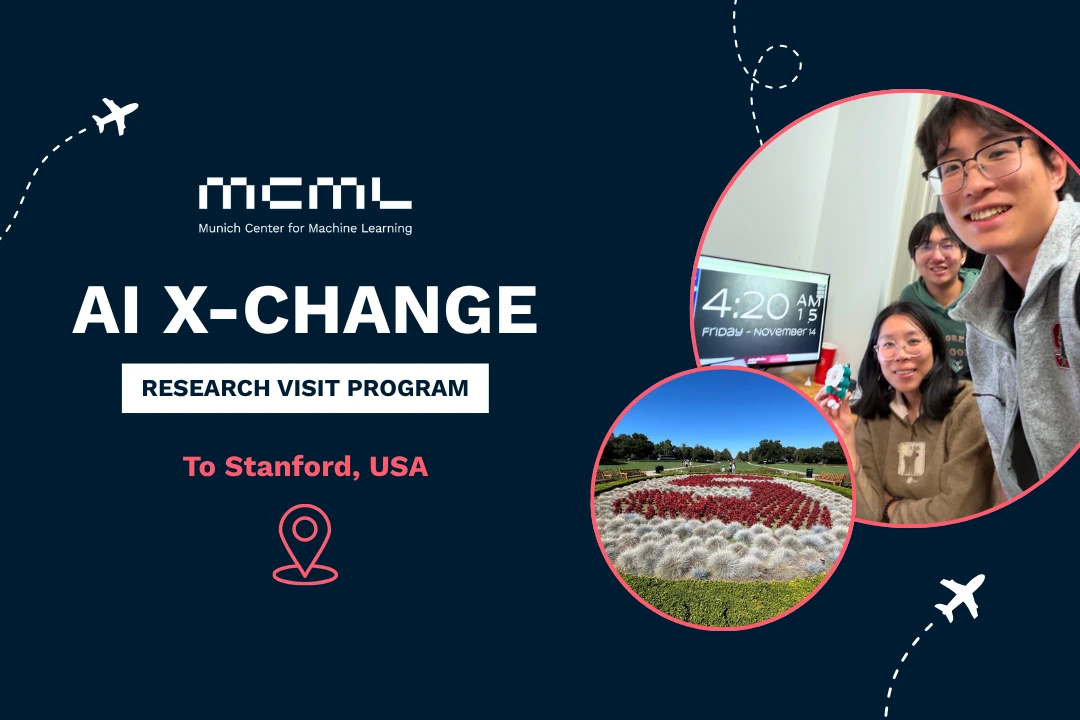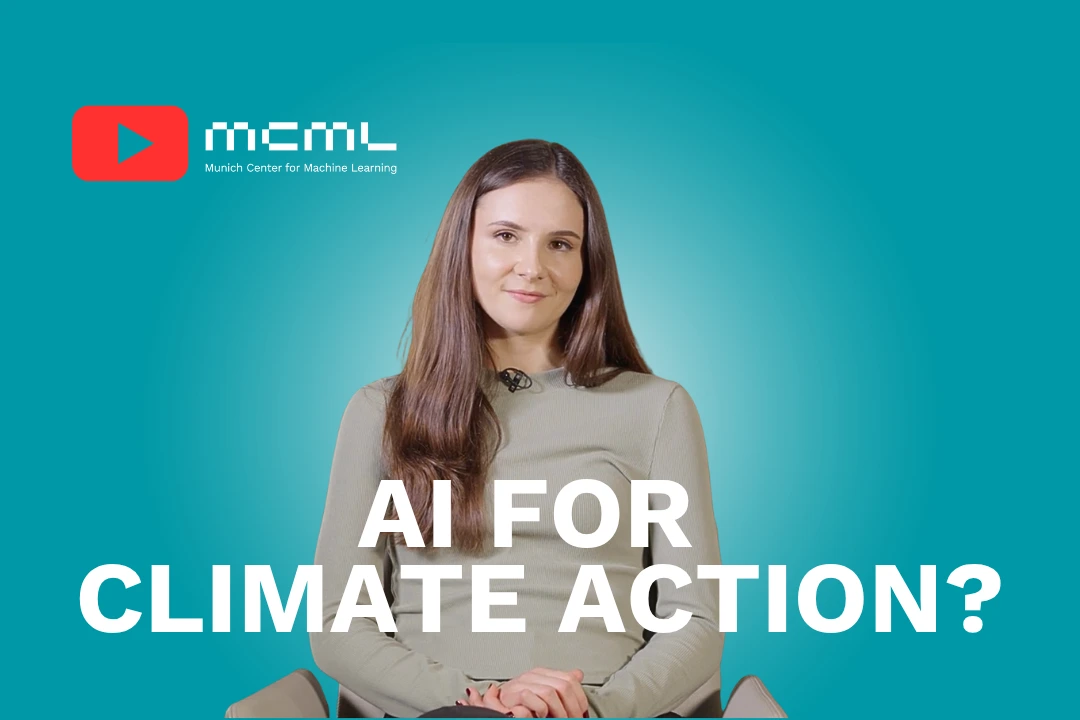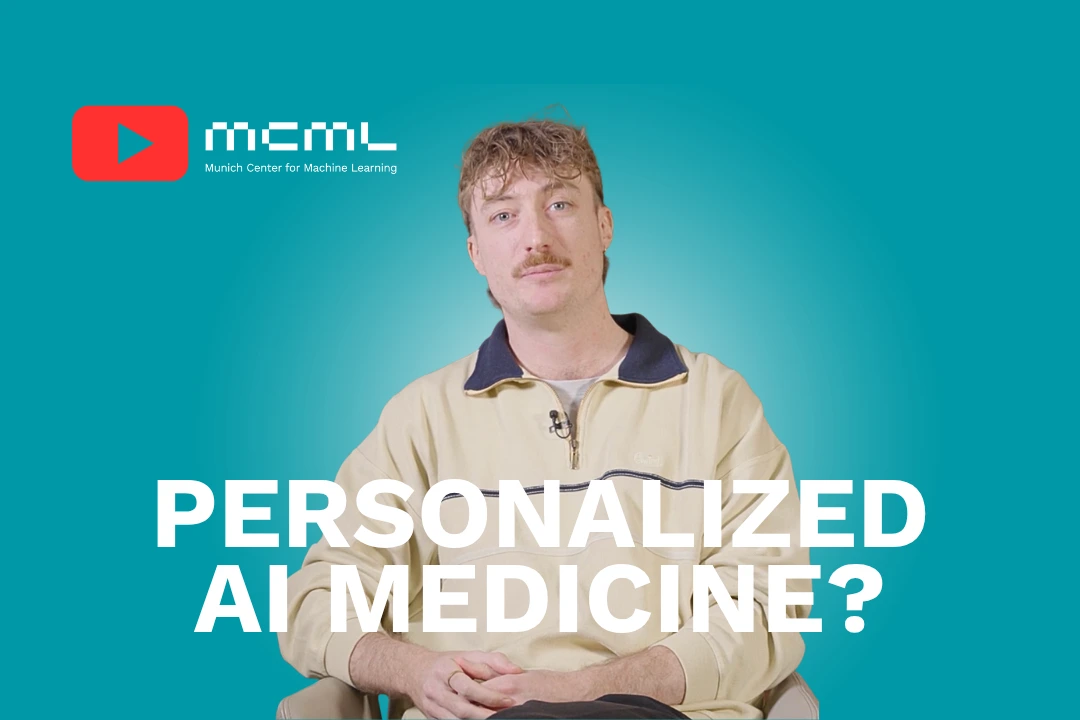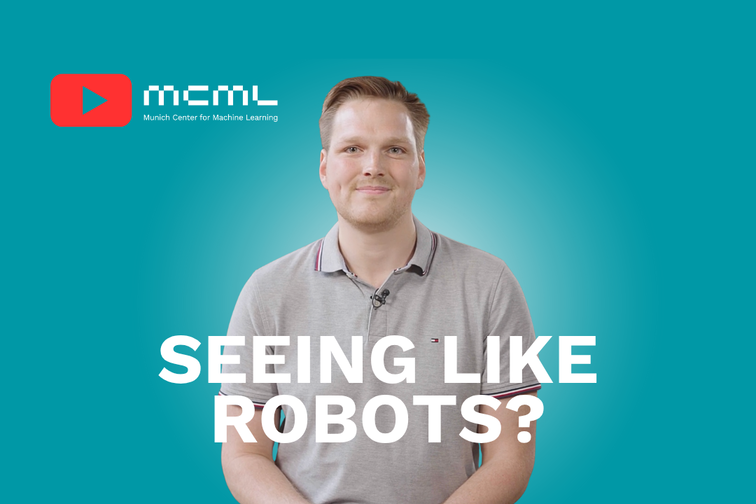Research Blog
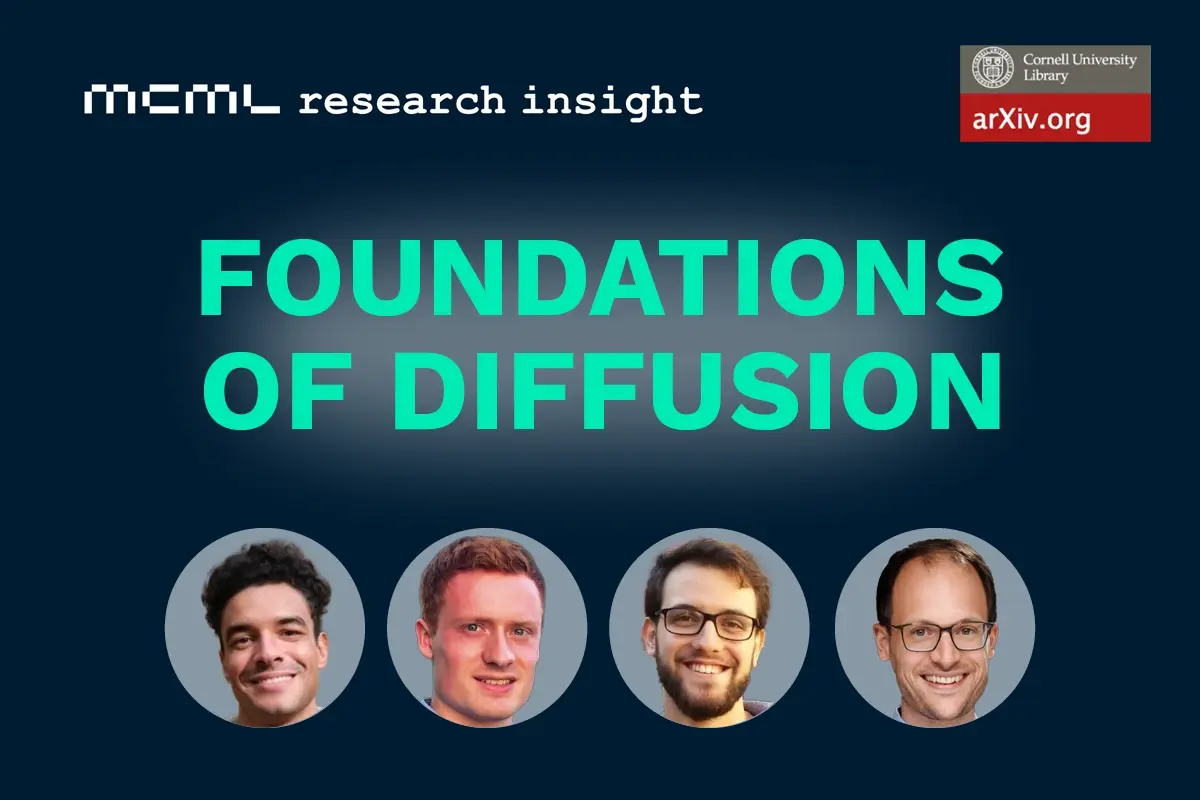
05.03.2026
Foundations of Diffusion: One Map for Images and Text
MCML Research Insight – With Vincent Pauline, Tobias Höppe, Andrea Dittadi, and Stefan Bauer
From hyper-realistic video generation to protein design, Diffusion Models are the engine behind the current wave of Generative AI. But if you try to understand how diffusion models actually work, you …
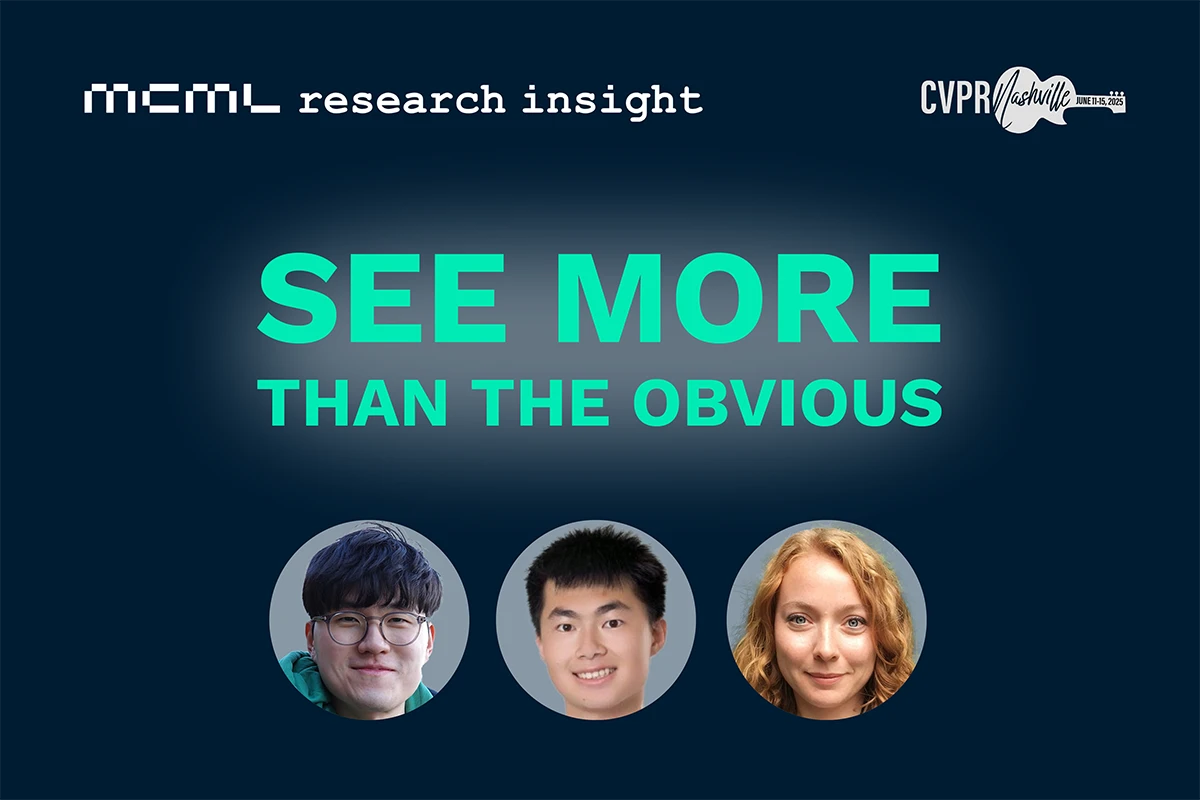
19.02.2026
COSMOS – Teaching Vision-Language Models to Look Beyond the Obvious
MCML Research Insight - With Sanghwan Kim, Rui Xiao, Mariana-Iuliana Georgescu, Stephan Alaniz, and Zeynep Akata
Today’s AI systems are remarkably good at recognizing what stands out most. Yet understanding how details relate to each other remains surprisingly difficult. Imagine asking an AI assistant to …
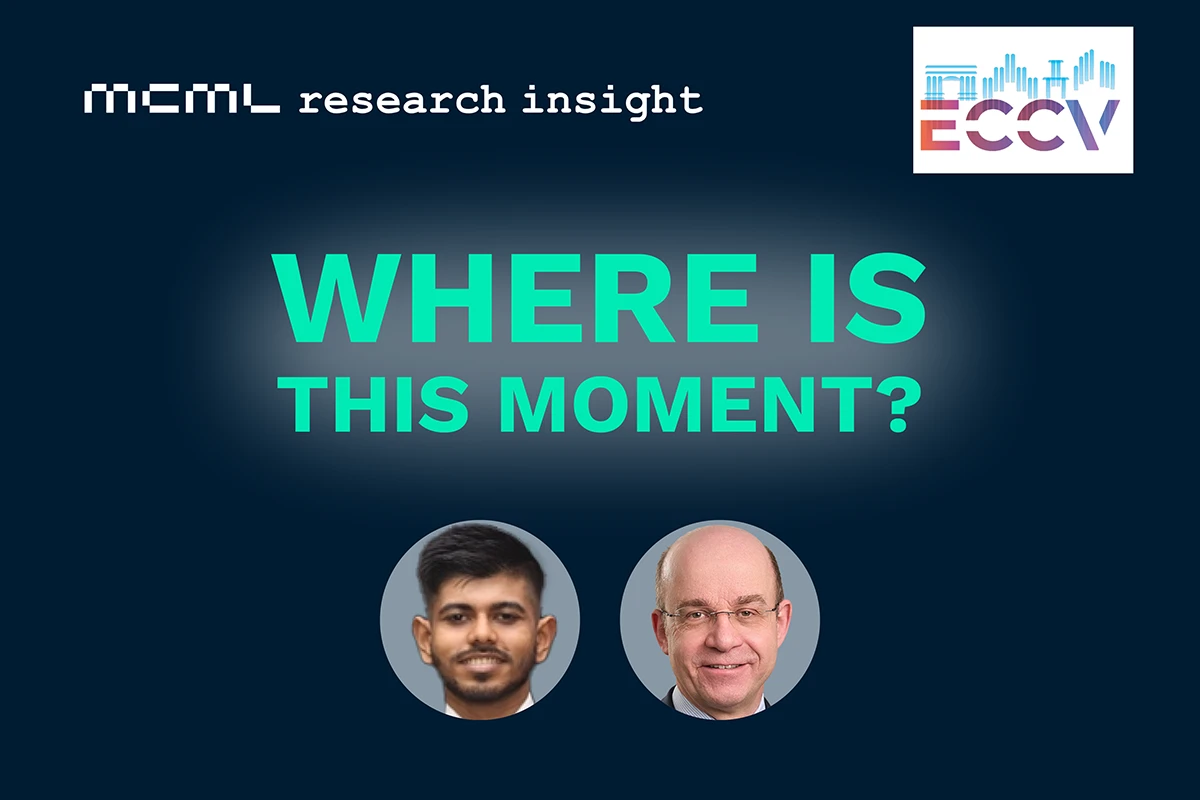
05.02.2026
Needle in a Haystack: Finding Exact Moments in Long Videos
MCML Research Insight - With With Tanveer Hannan and Thomas Seidl
Long videos are everywhere, with footage of movies, YouTube videos, body-cam recordings, and AR/VR often running for tens of minutes or even hours. Now imagine asking a simple question like “Where are …
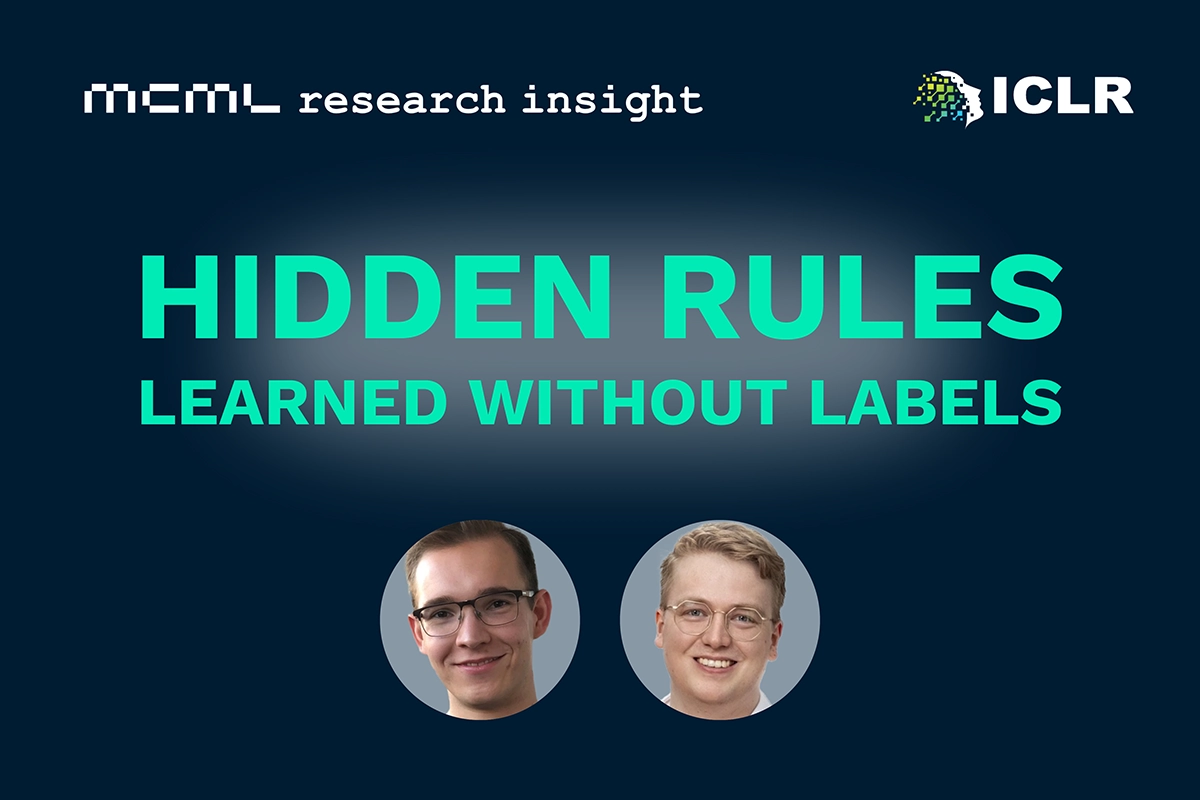
29.01.2026
How Machines Can Discover Hidden Rules Without Supervision
MCML Research Insight - With Tobias Schmidt, and Steffen Schneider
How can machines learn the hidden rules that govern how systems change—how objects move, how weather patterns unfold, or how biological signals evolve—without ever being told what those rules are?
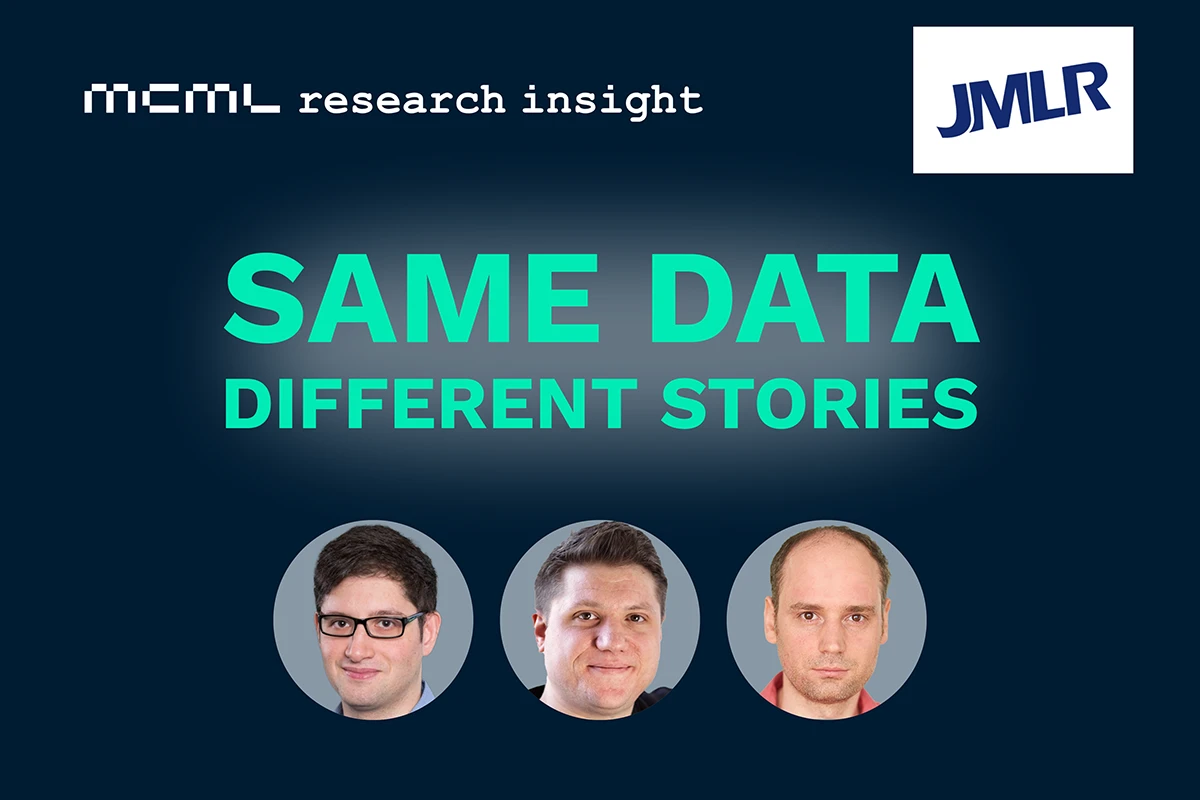
22.01.2026
From Global to Regional Explanations: Understanding Models More Locally
MCML Research Insight - With Giuseppe Casalicchio, Thomas Nagler, and Bernd Bischl
Machine learning models can be powerful, but understanding why they behave the way they do is often much harder. Early global interpretability tools were designed to show how each feature affects the …
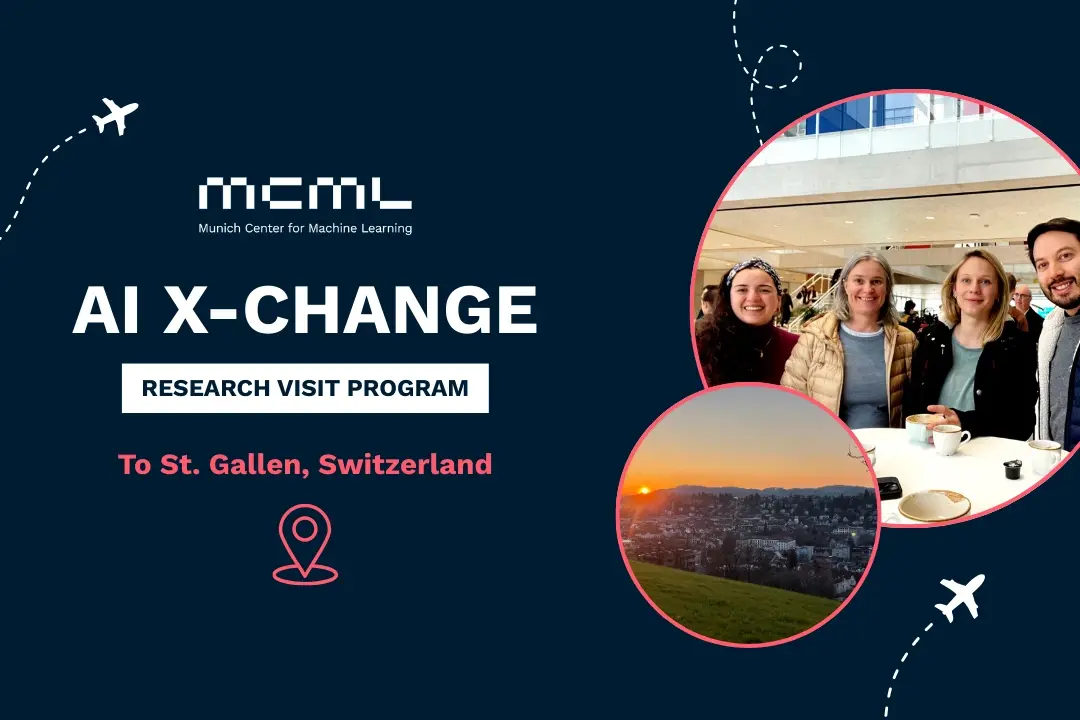
22.01.2026
Research Stay at University of St. Gallen
Andrea Maldonado – Funded by the MCML AI X-Change Program
Between Freudenberg – “happiness mountain” – and Rosenberg – “roses mountain”, I had the pleasure to visit the Institute of Computer Science (ICS-HSG) at the University of St. Gallen (HSG) in …
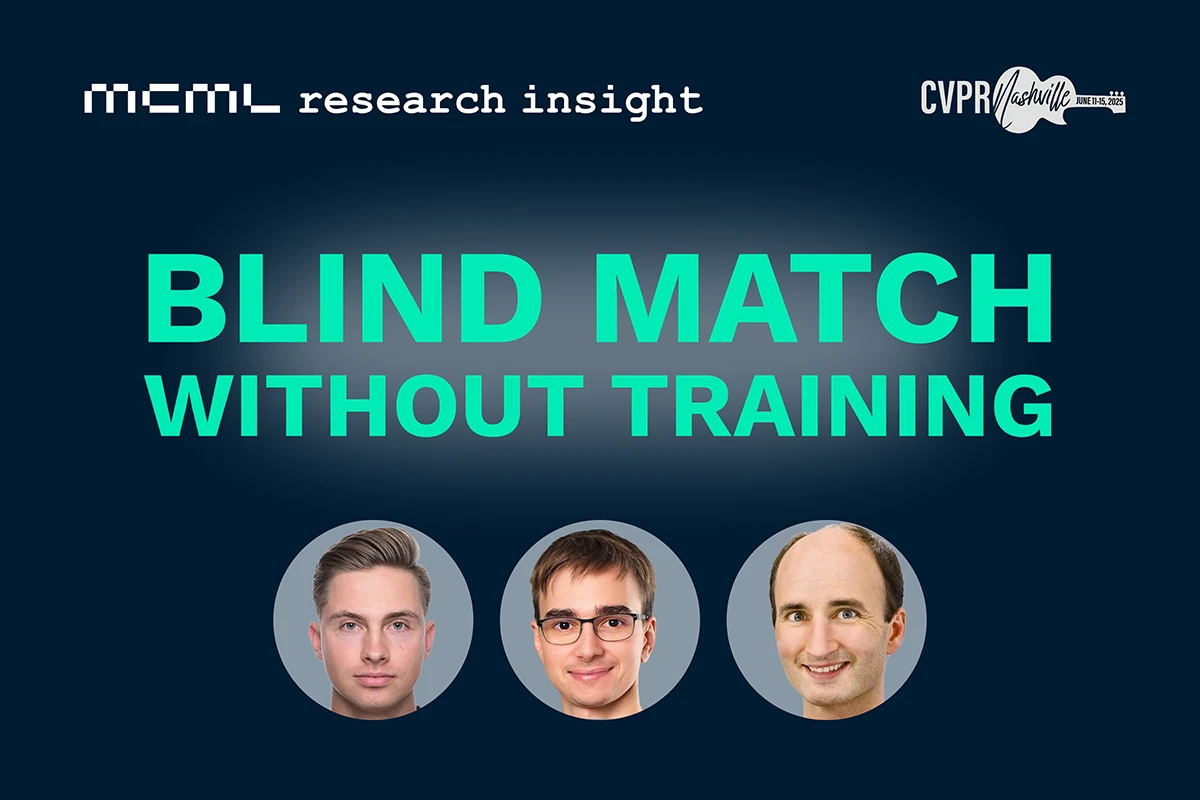
15.01.2026
Blind Matching – Aligning Images and Text Without Training or Labels
MCML Research Insight - With Dominik Schnaus, Nikita Araslanov, and Daniel Cremers
Vision-language models have shown that images and text can live in a shared space: a picture of a “cat” often lands close to the word “cat” in the embedding space. But such …
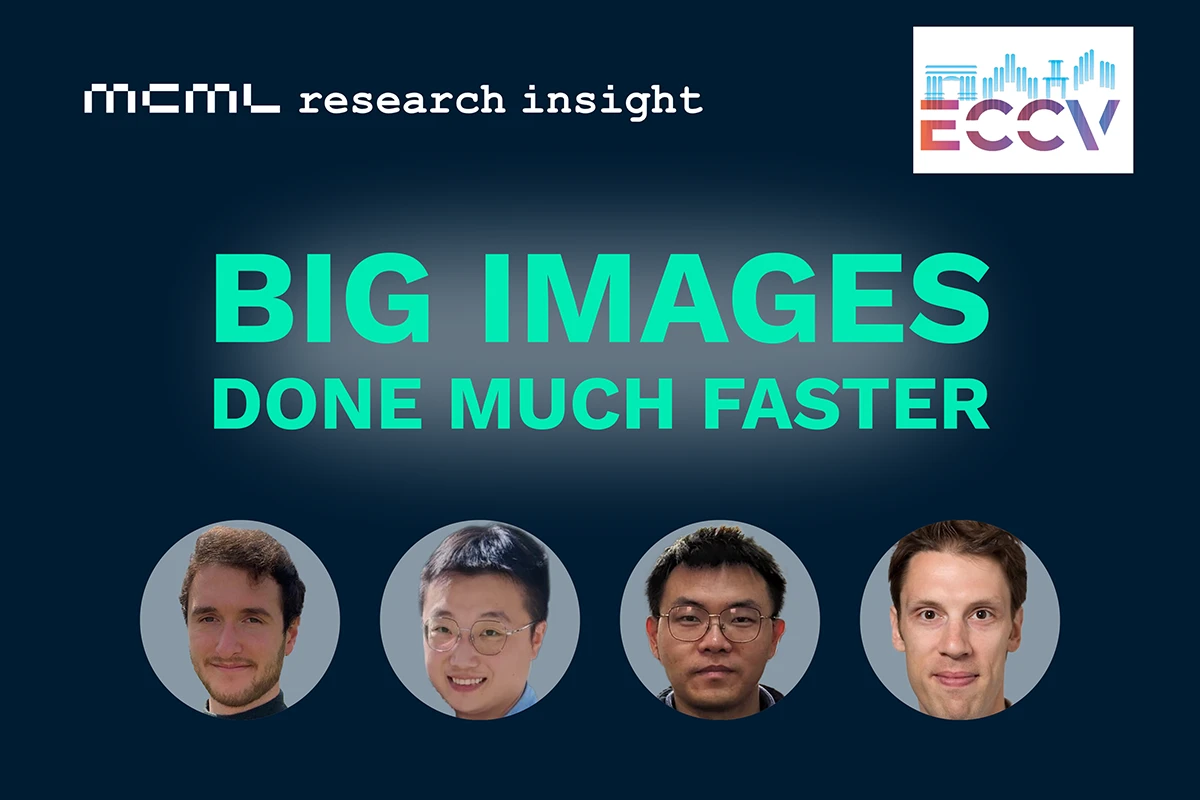
08.01.2026
High-Res Images, Less Wait: A Simple Flow for Image Generation
MCML Research Insight - With Johannes Schusterbauer, Pingchuan Ma, Vincent Tao Hu, and Björn Ommer
Image generation models today can create almost anything, like a futuristic city glowing at sunset, a classical painting of your cat, or a realistic spaceship made of glass. But when you ask them to …
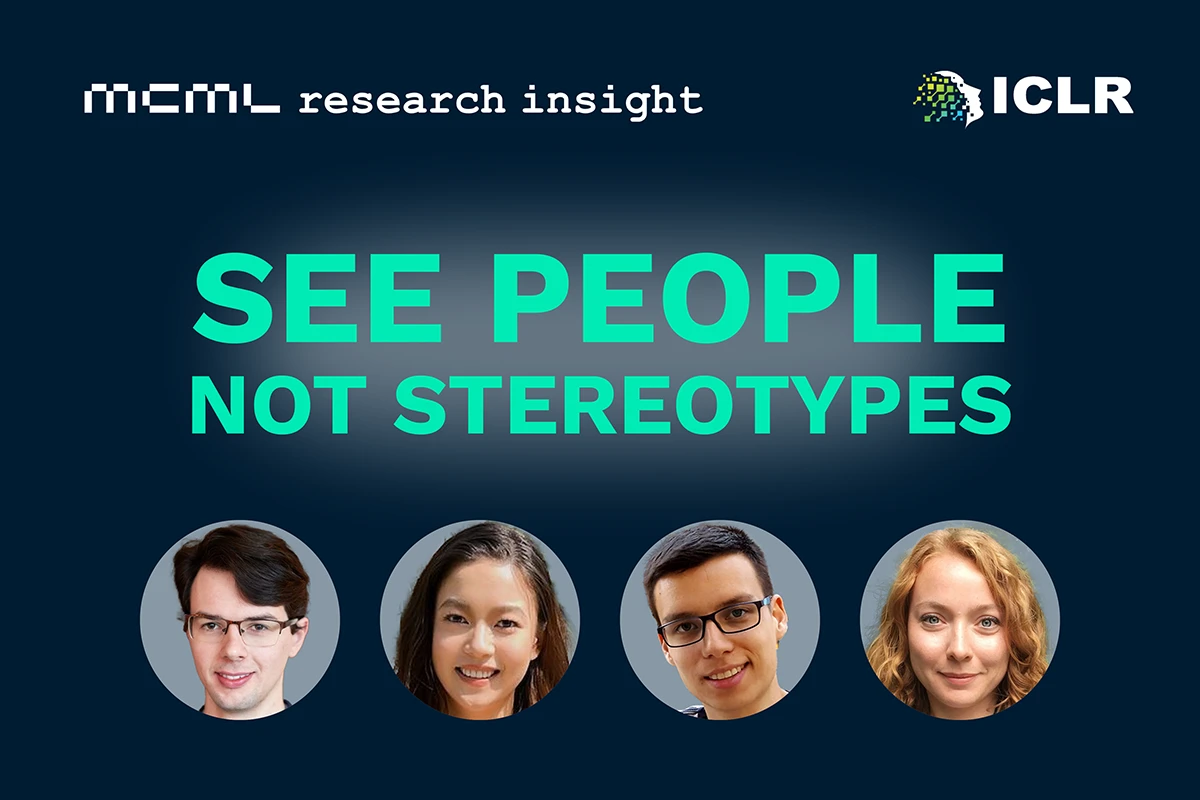
18.12.2025
"See, Don’t Assume": Revealing and Reducing Gender Bias in AI
MCML Research Insight - With Leander Girrbach, Yiran Huang, Stephan Alaniz and Zeynep Akata
Using AI and LLMs at work feels almost unavoidable today: they make things easier, but they can also go wrong in important ways. One of the trickiest problems? Gender bias. For example, if you ask …
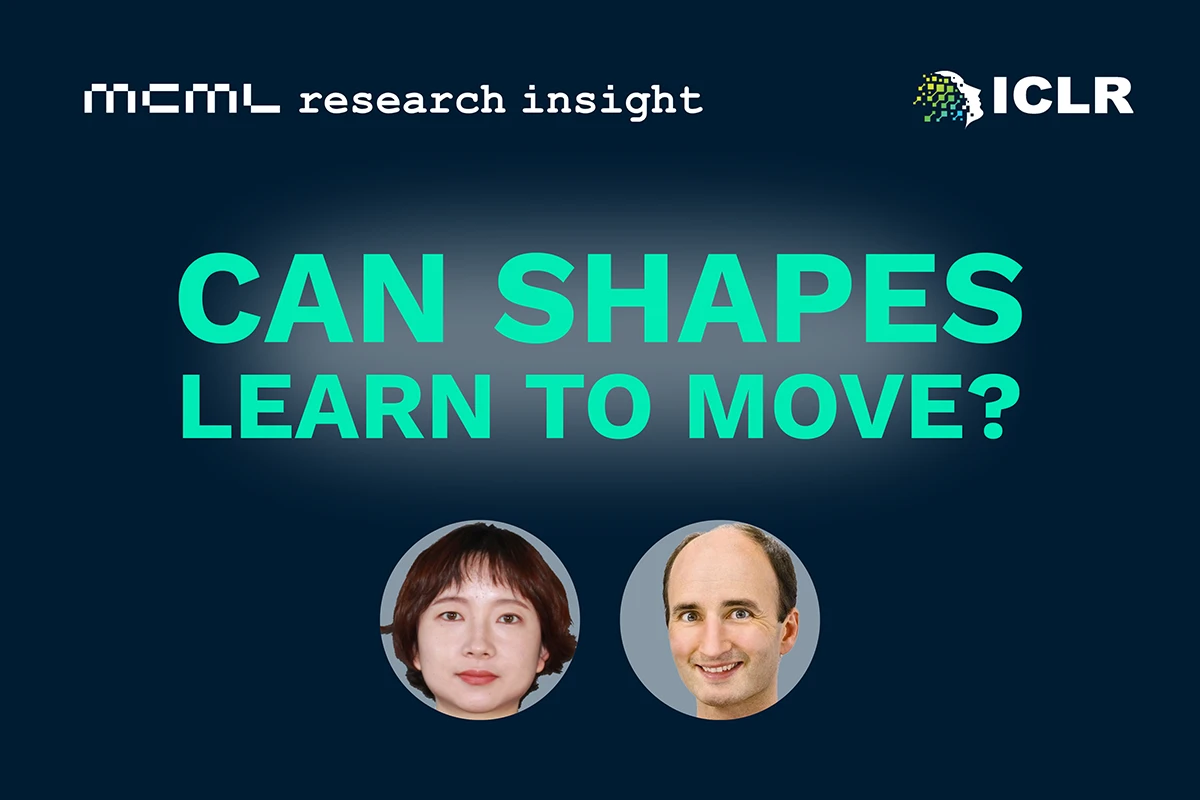
11.12.2025
From Sitting Dog to Standing: A New Way to Morph 3D Shapes
MCML Research Insight - With Lu Sang and Daniel Cremers
Ever wondered how a 3D shape can smoothly change — like a robot arm bending or a dog rising from sitting to standing — without complex simulations or hand-crafted data? Researchers from MCML and the …
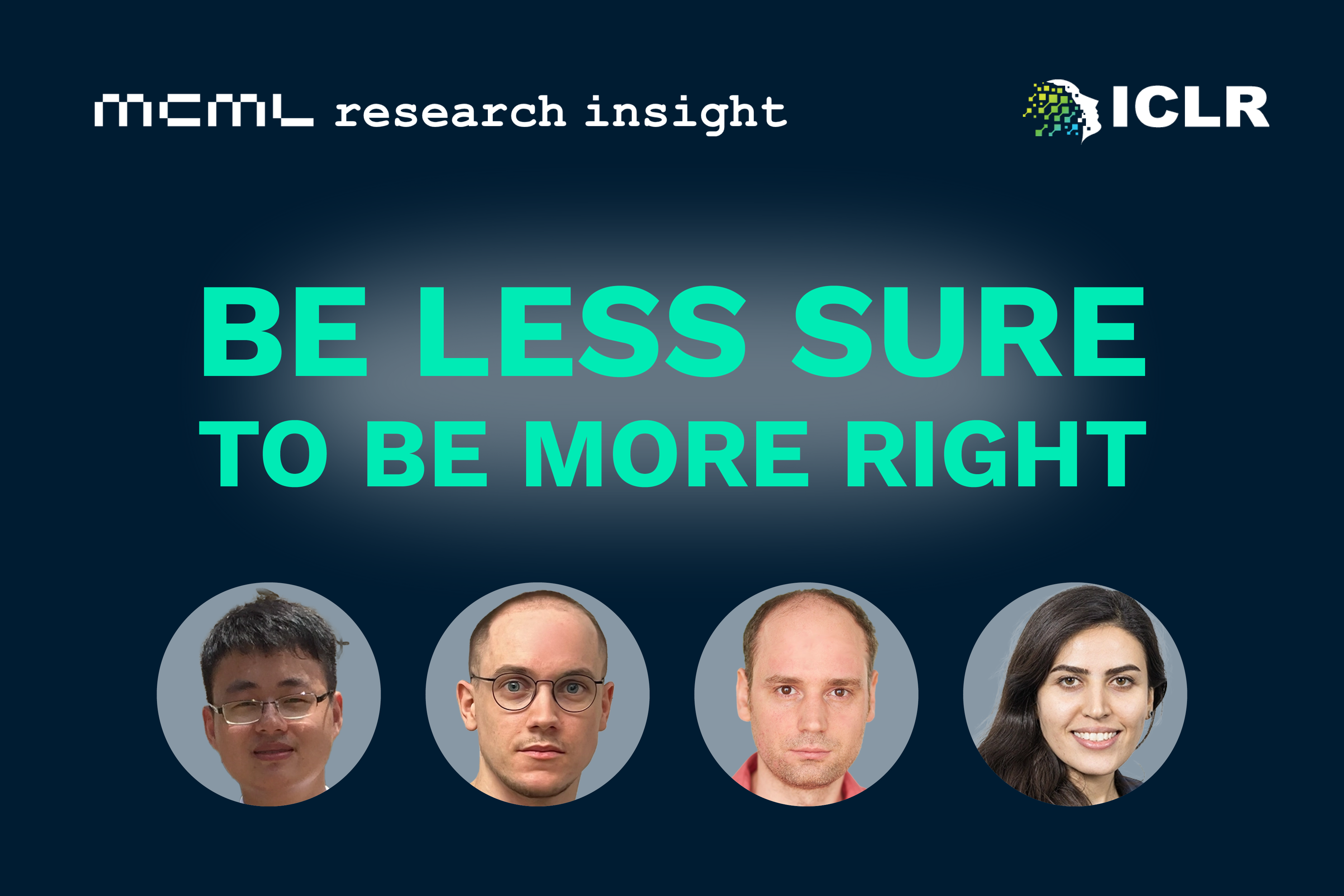
04.12.2025
When to Say "I’m Not Sure": Making Language Models More Self-Aware
MCML Research Insight - With Yawei Li, David Rügamer, Bernd Bischl, and Mina Rezaei
Large language models like ChatGPT or Gemini are now everywhere, from summarizing text to writing code or answering simple questions. But there’s one thing they still struggle with: admitting …
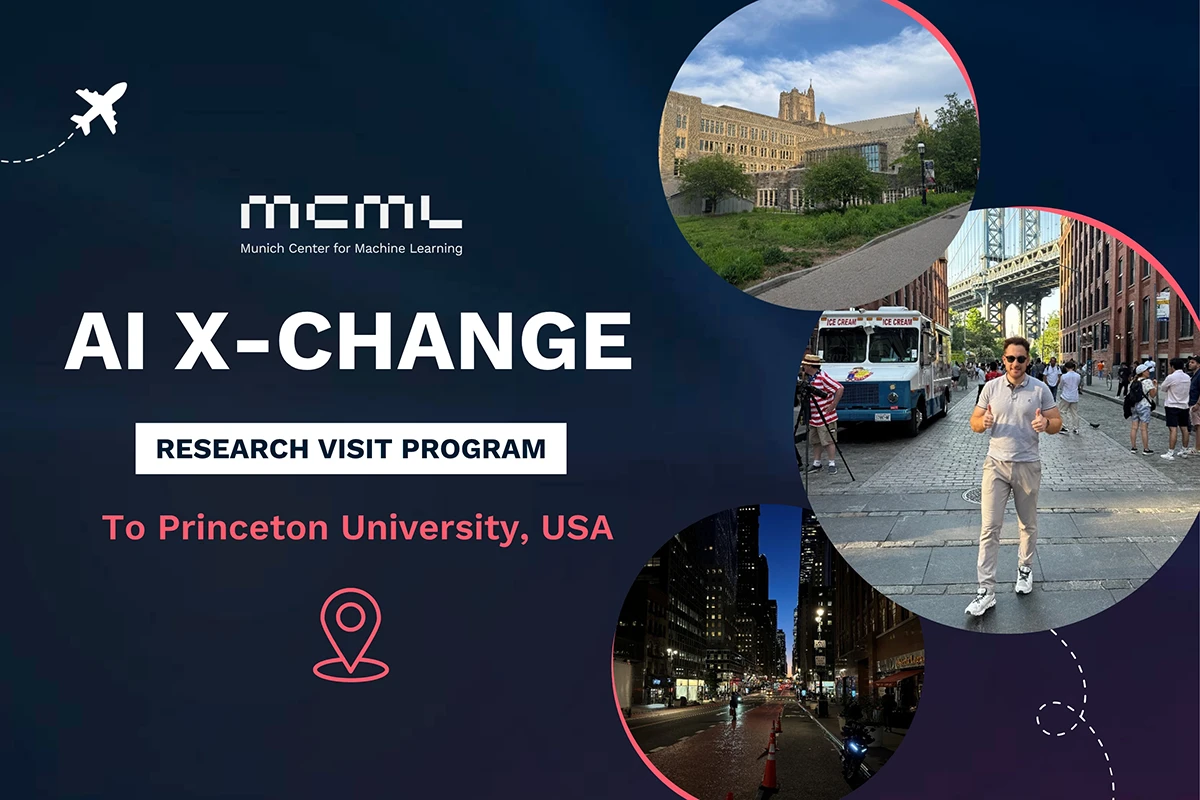
01.12.2025
Research Stay at Princeton University
Abdurahman Maarouf – Funded by the MCML AI X-Change Program
From May to July, I spent three exciting months as a visiting researcher at the Computer Science Department of Princeton University, hosted by Prof. Manoel Horta Ribeiro. The visit grew out of a …
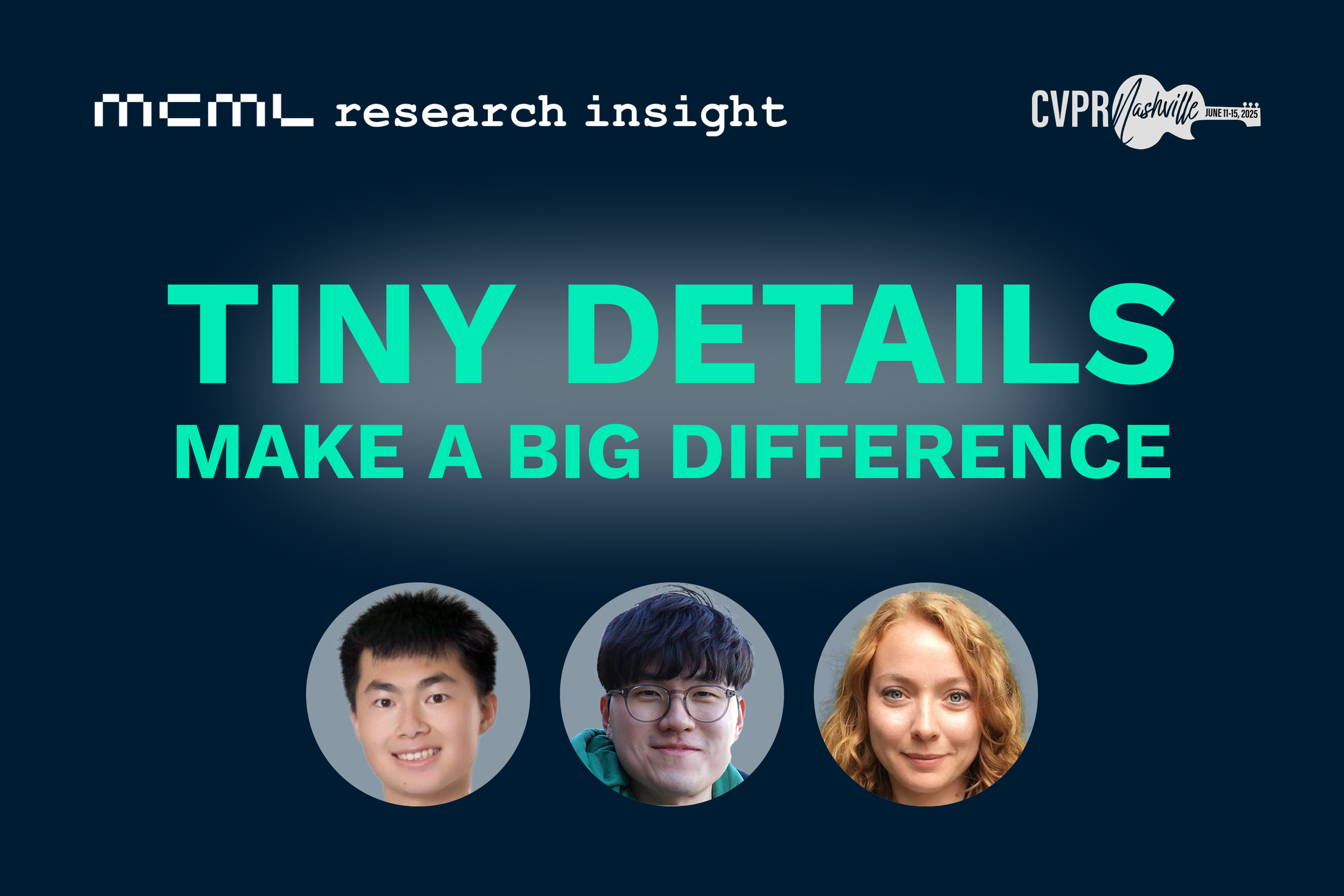
27.11.2025
Seeing the Bigger Picture – One Detail at a Time
MCML Research Insight - With Rui Xiao, Sanghwan Kim, and Zeynep Akata
Large vision-language models (VLMs) like CLIP (Contrastive Language-Image Pre-training) have changed how AI works with mixed inputs of images and text, by learning to connect pictures and words. Given …
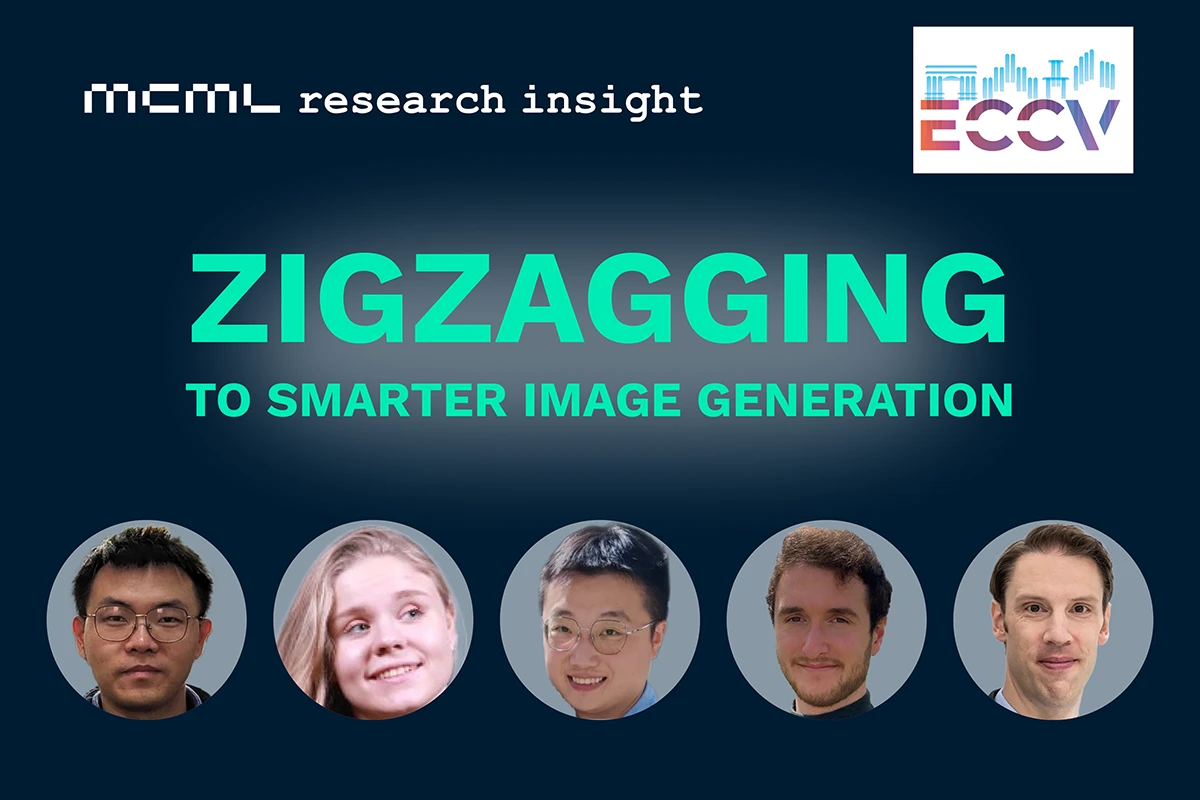
20.11.2025
Zigzag Your Way to Faster, Smarter AI Image Generation
MCML Research Insight - With Vincent Tao Hu, Olga Grebenkova, Pingchuan Ma, Johannes Schusterbauer, and Björn Ommer
State-of-the-art diffusion models like DiT and Stable Diffusion have made AI image generation incredibly powerful. But they still struggle with one big issue: scaling to large images or videos quickly …
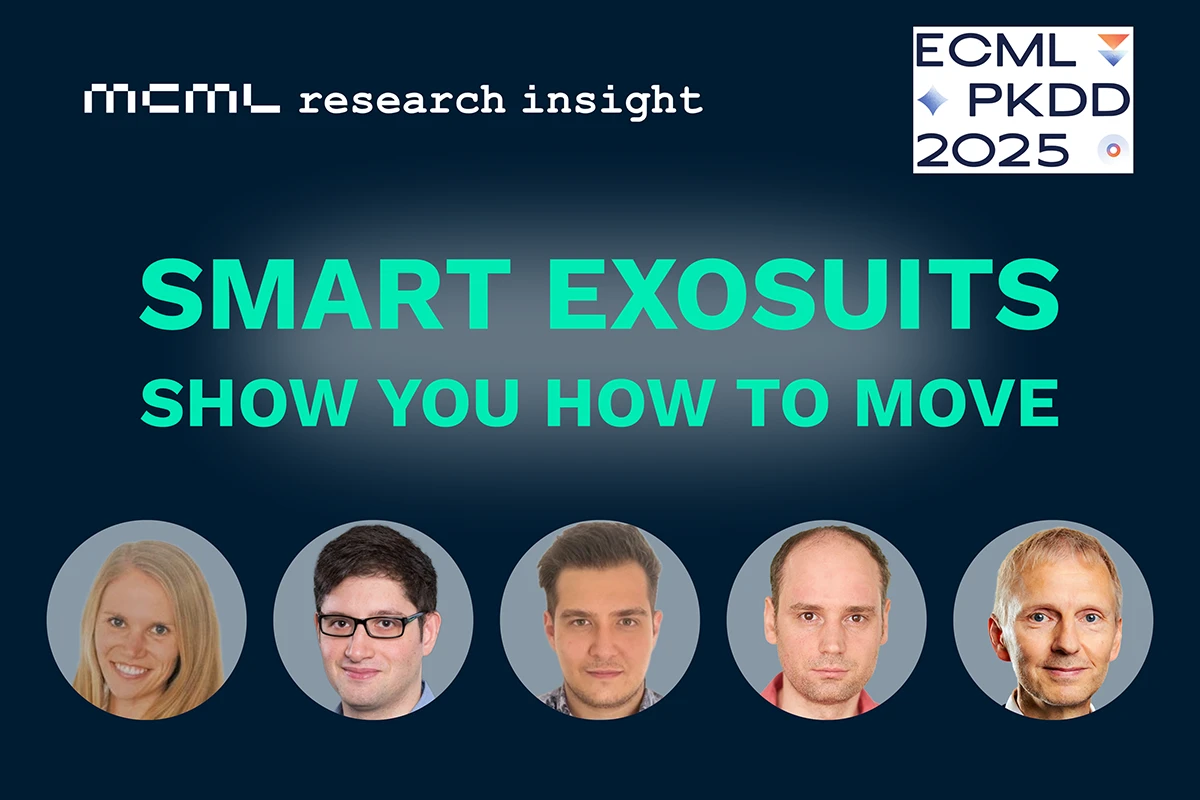
13.11.2025
Explaining AI Decisions: Shapley Values Enable Smart Exosuits
MCML Research Insight - With Julia Herbinger, Giuseppe Casalicchio, Yusuf Sale, Bernd Bischl and Eyke Hüllermeier
Picture a typical day in a warehouse: one worker lifts, bends, and carries out the same task over and over again. While the routine may seem simple, the physical toll steadily builds—affecting joints …
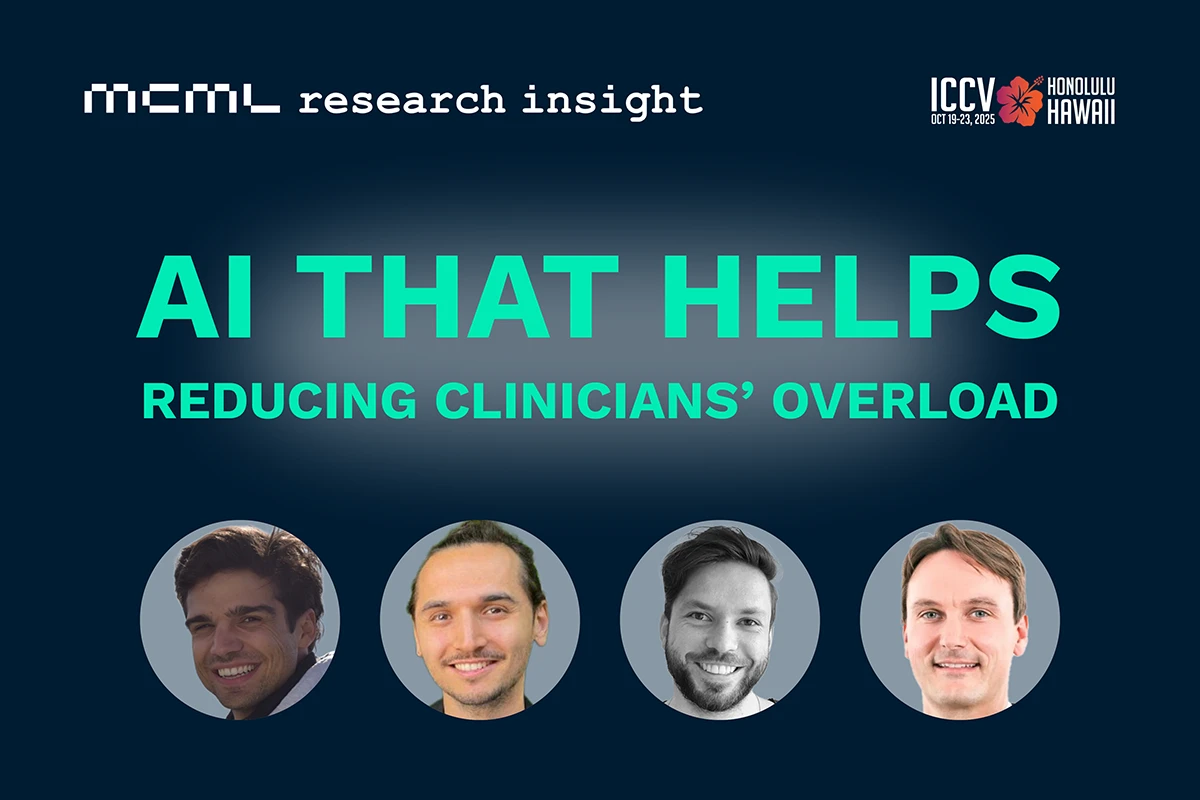
16.10.2025
SIC: Making AI Image Classification Understandable
MCML Research Insight - With Tom Nuno Wolf, Emre Kavak, Fabian Bongratz, and Christian Wachinger
Deep learning models are emerging more and more in everyday life, going as far as assisting clinicians in their diagnosis. However, their black box nature prevents understanding errors and …
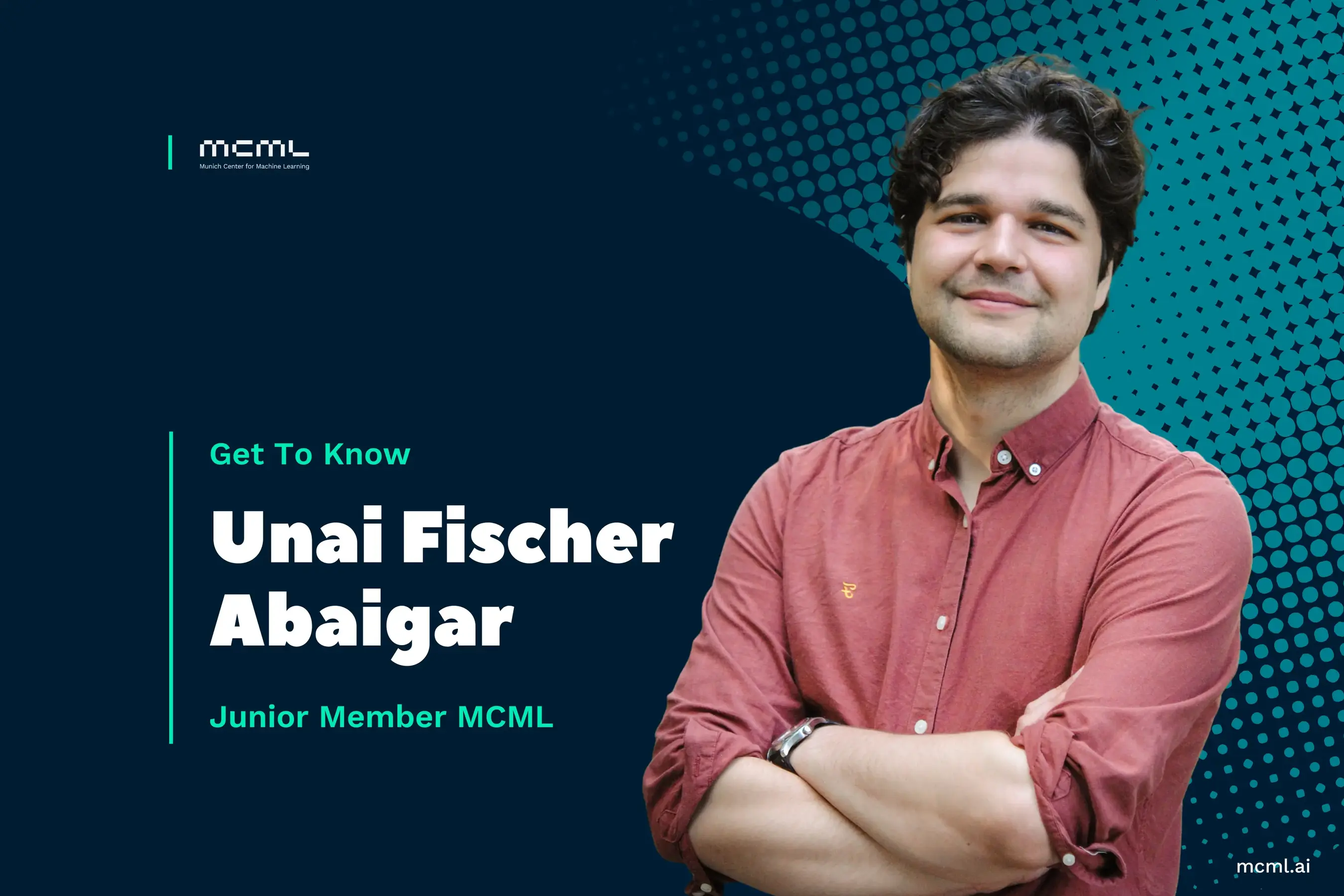
09.10.2025
Rethinking AI in Public Institutions - Balancing Prediction and Capacity
Researcher in Focus: Unai Fischer Abaigar
Unai Fischer Abaigar is a researcher at MCML whose work focuses on improving decision-making in public institutions by developing AI systems that are both fair and effective in practice.
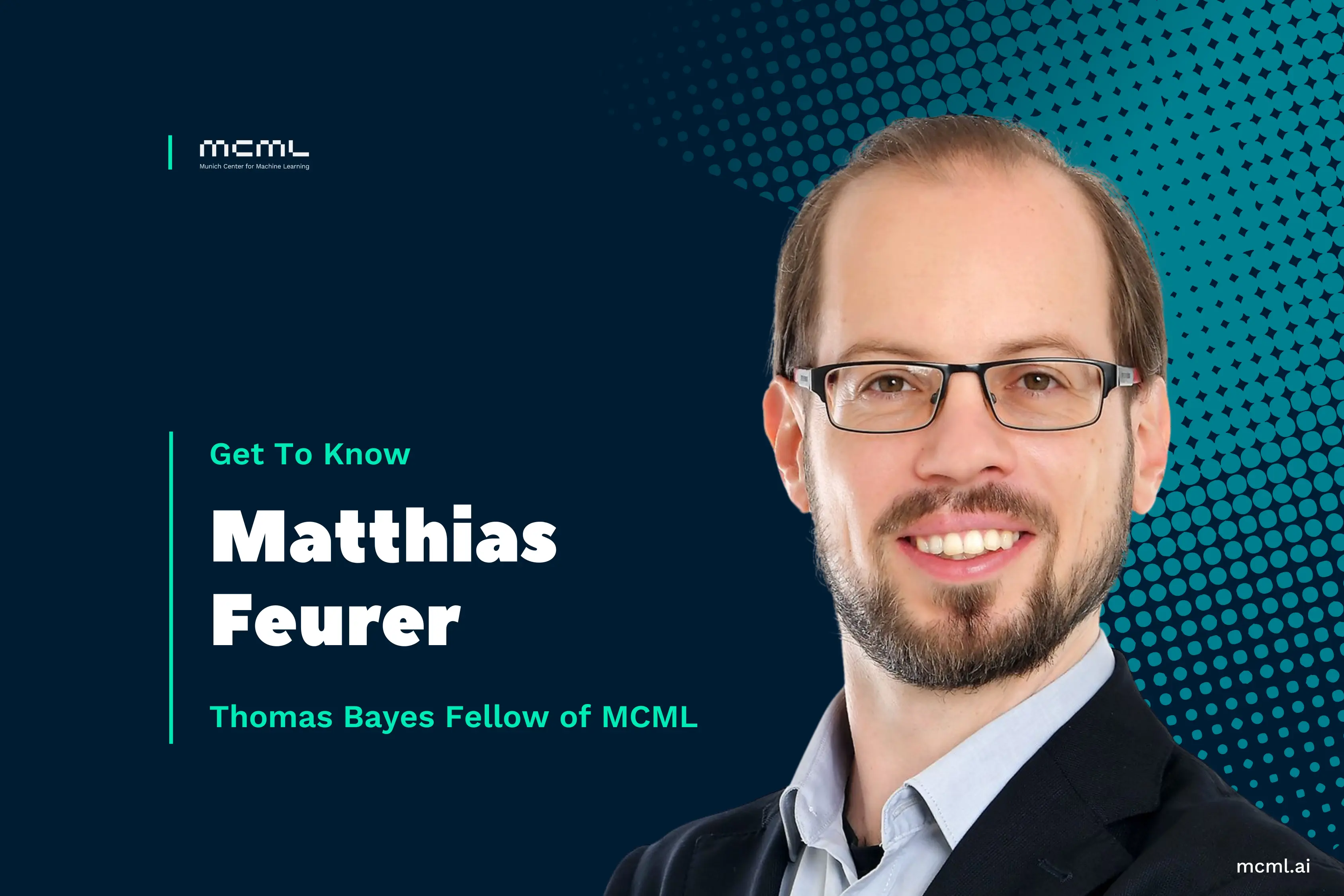
26.09.2025
Making Machine Learning More Accessible With AutoML
Researcher in Focus: Matthias Feurer
Matthias Feurer is a Thomas Bayes Fellow and interim professor, funded by the MCML and a member of the Chair of Statistical Learning and Data Science at LMU. He aims to simplify the usage of machine …
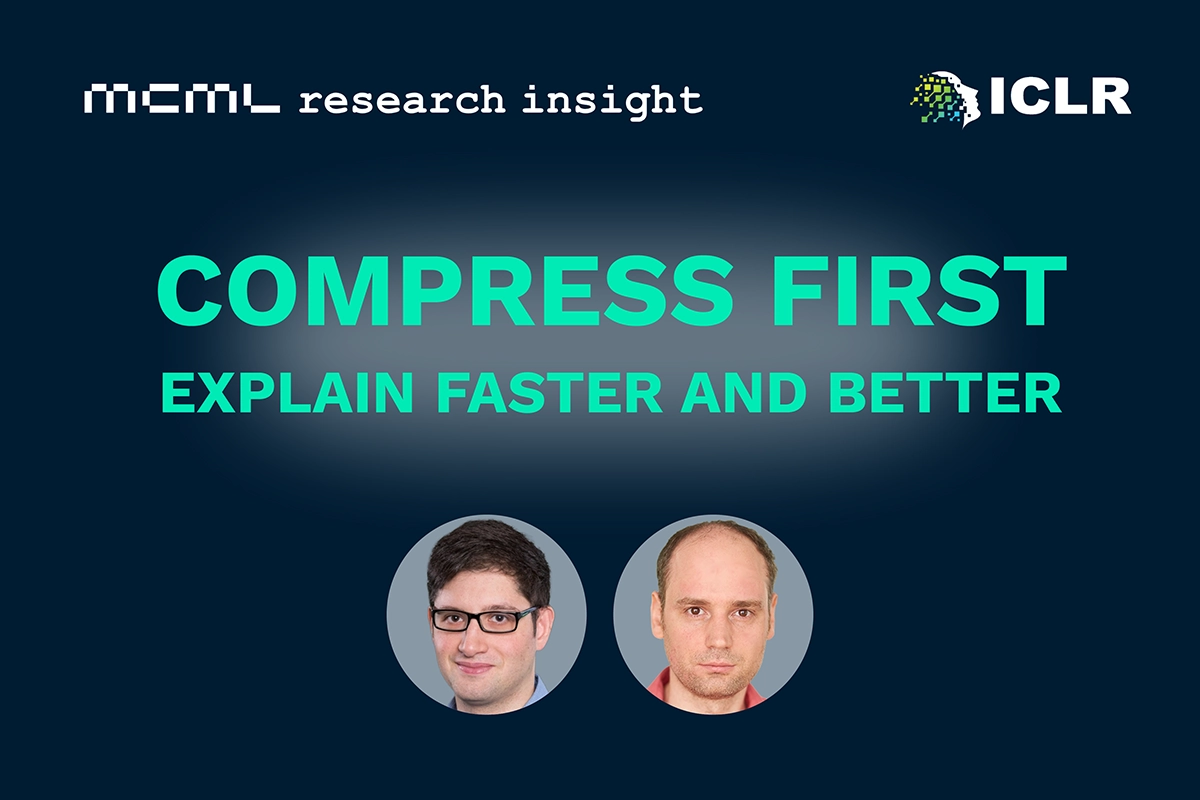
25.09.2025
Compress Then Explain: Faster, Steadier AI Explanations - With One Tiny Step
MCML Research Insight - With Giuseppe Casalicchio and Bernd Bischl
Imagine re-running feature importance plots and getting slightly different “top features.” Annoying, right? That uncertainty often comes from a quiet assumption: model explanation algorithms typically …
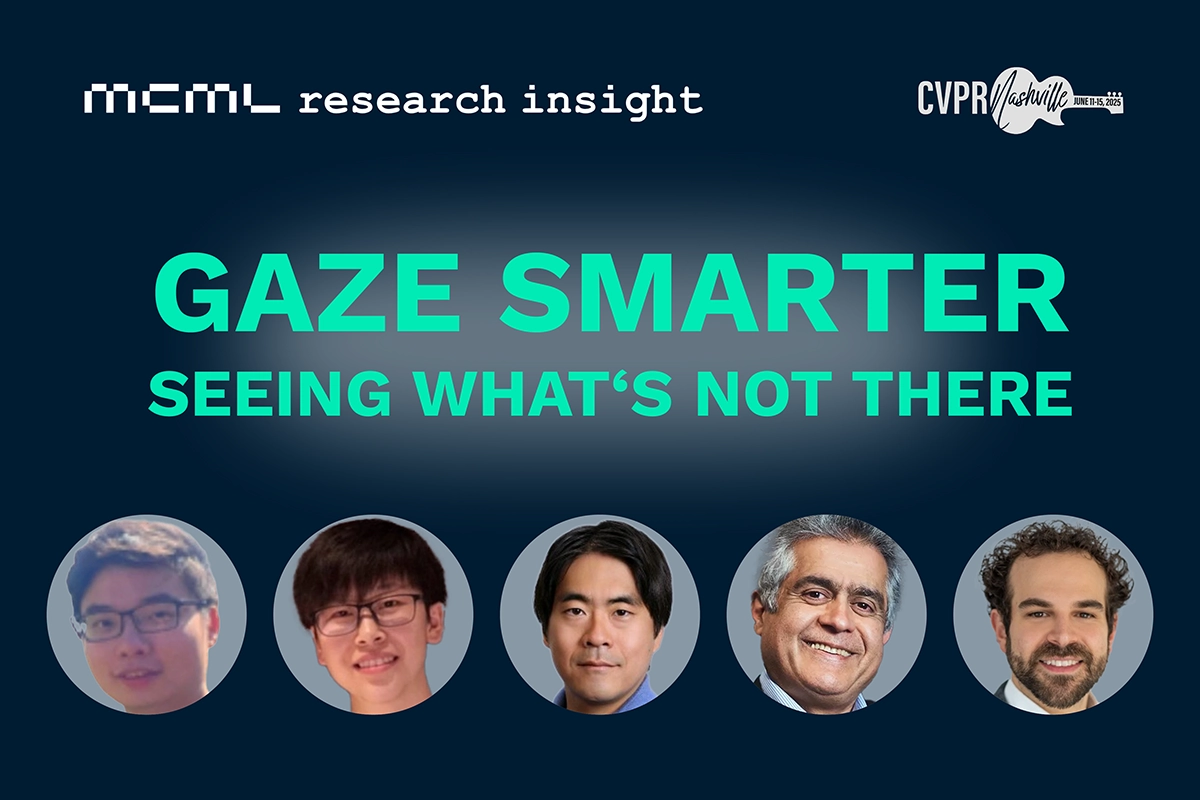
18.09.2025
GCE-Pose – Predicting Whole Objects From Partial Views
MCML Research Insight - With Weihang Li, Junwen Huang, Hyunjun Jung, Nassir Navab, and Benjamin Busam
Imagine trying to identify the full shape of a familiar object, e.g. a mug, when only its handle is visible. That’s the challenge a computer faces when estimating the pose of an object (its …
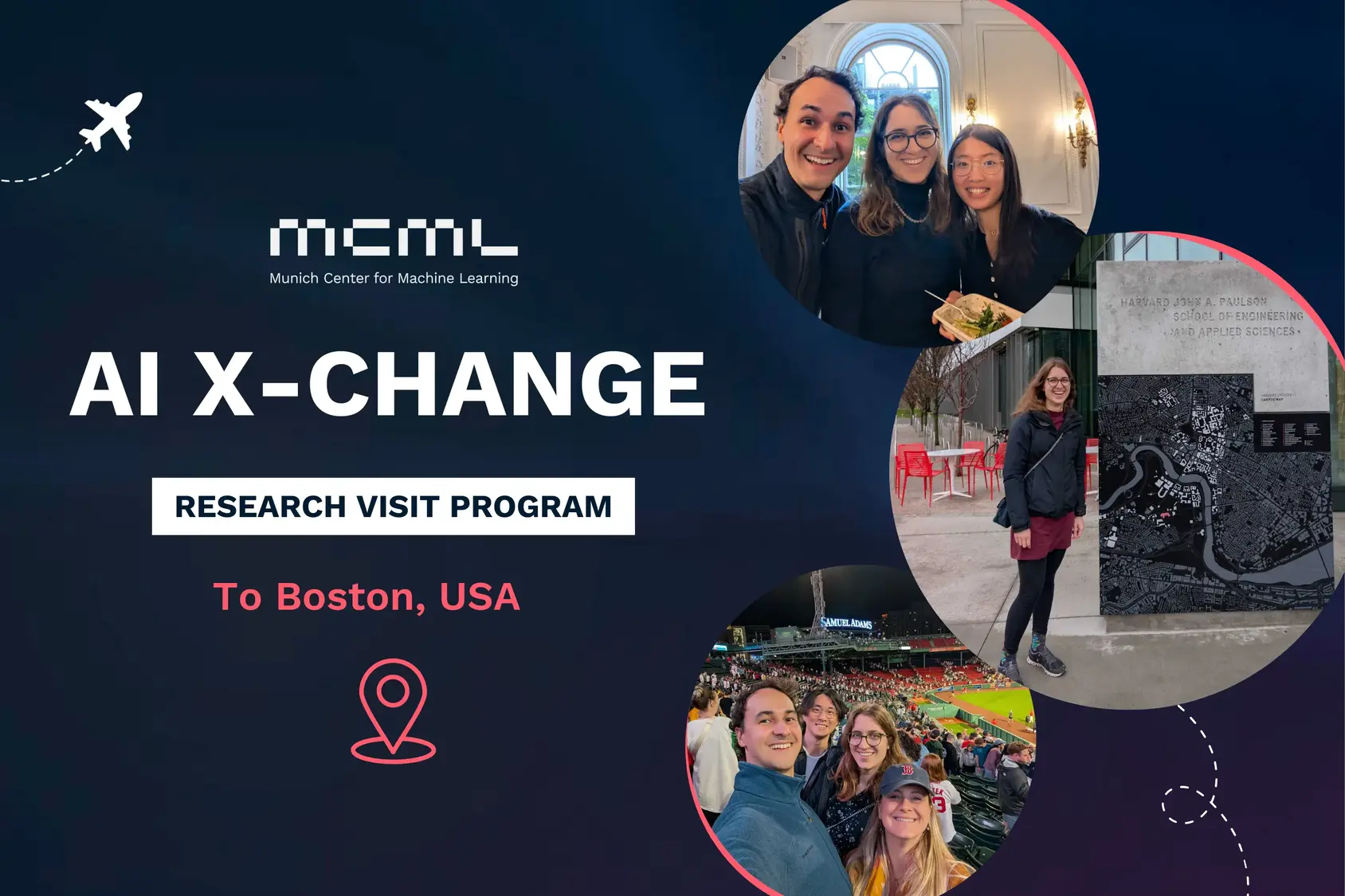
17.09.2025
Research Stay at Harvard University
Hannah Laus – Funded by the MCML AI X-Change Program
This summer, I had the incredible opportunity to spend 11 weeks at Harvard University as part of the AI X-change program, visiting the group of Flavio Calmon at the Harvard John A. Paulson School of …
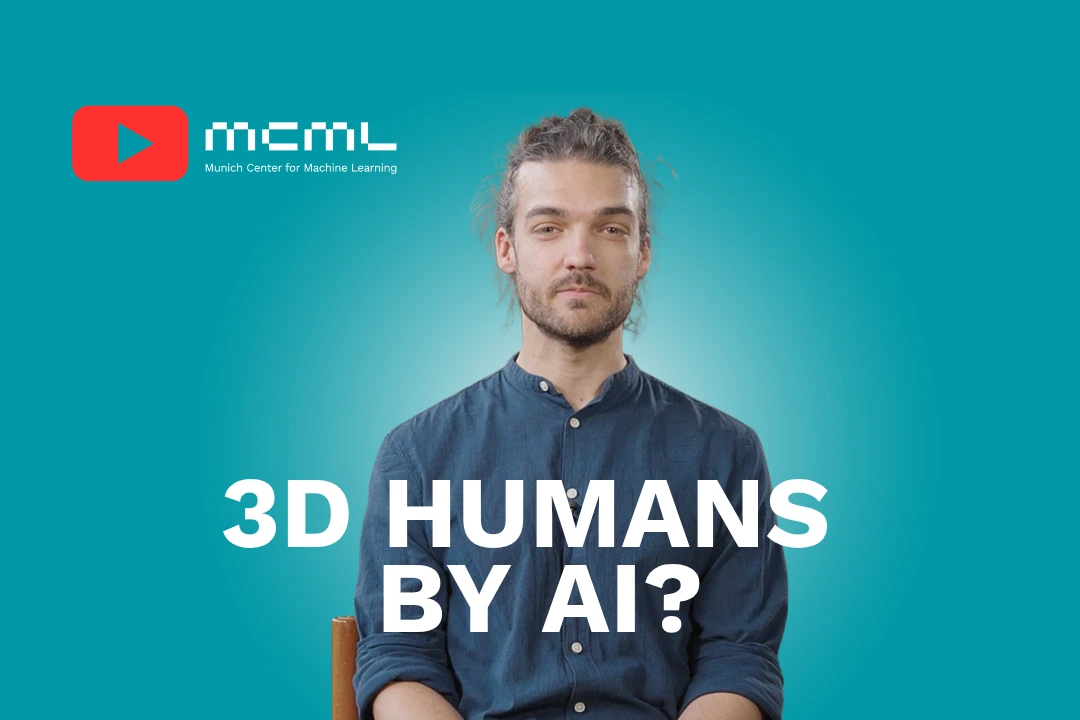
08.09.2025
3D Machine Perception Beyond Vision - With Researcher Riccardo Marin
Research Film
Can AI understand the world in 3D the way we do? Riccardo Marin, researcher at TUM and MCML, works at the intersection of computer vision and 3D geometry to teach machines how to perceive shapes, …
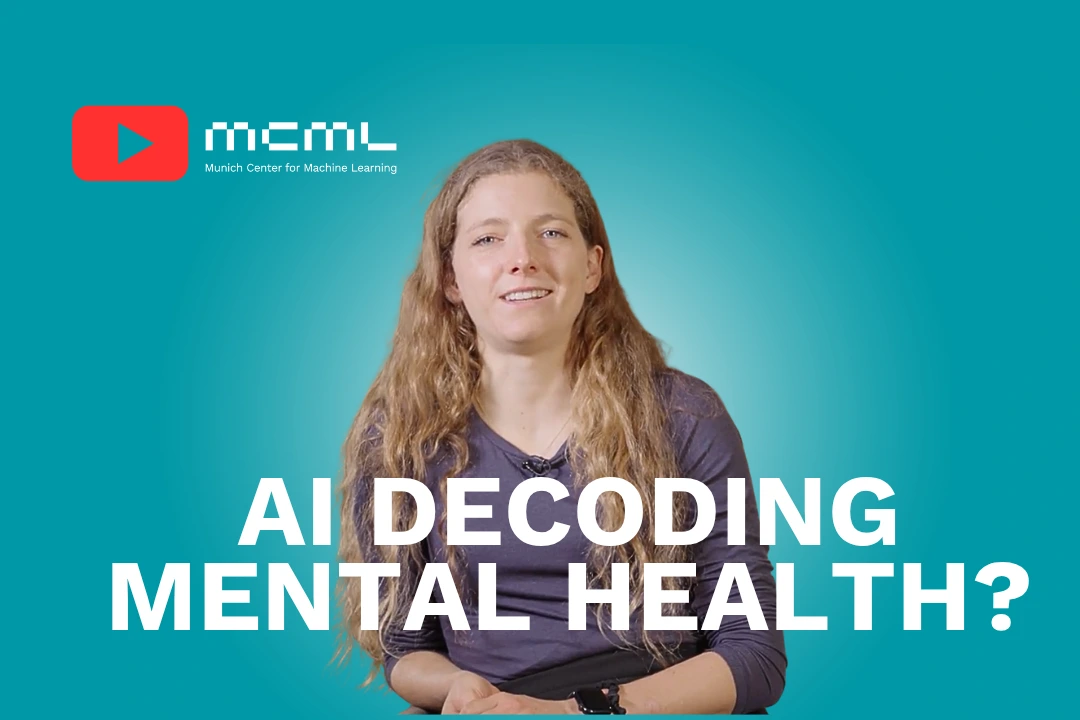
01.09.2025
AI for Personalized Psychiatry - With Researcher Clara Vetter
Research Film
Can AI help us understand why some people develop mental disorders while others remain resilient? MCML Junior Member Clara Vetter, PhD candidate in the group of our Director Daniel Rückert, uses …
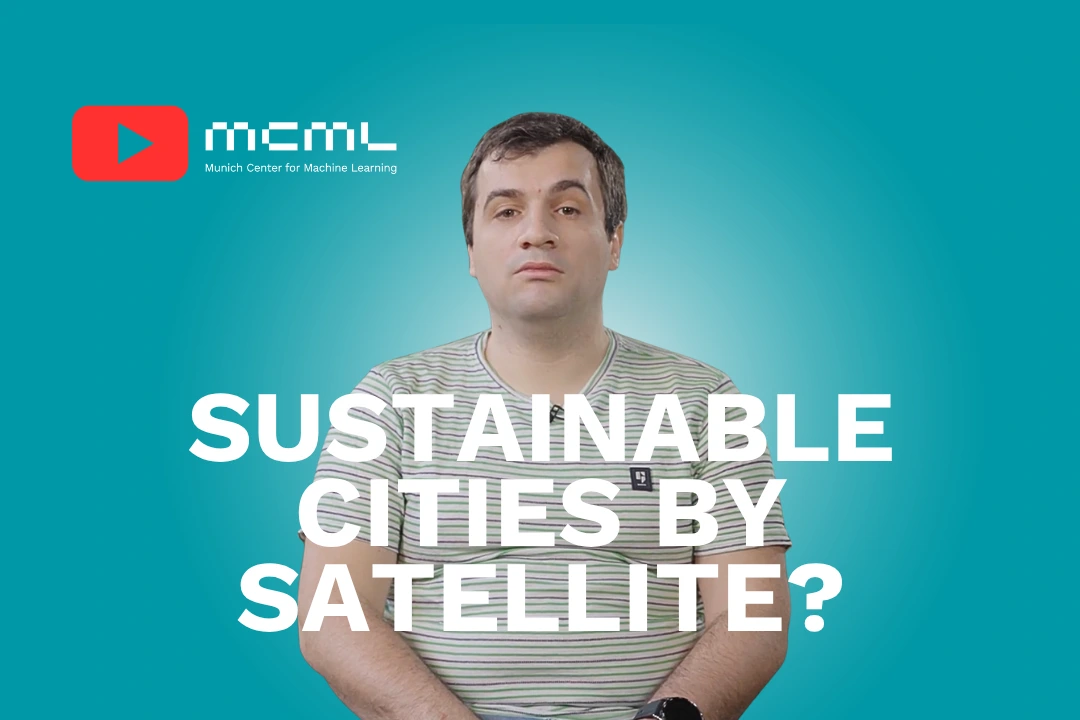
25.08.2025
Satellite Insights for a Sustainable Future - With Researcher Ivica Obadic
Research Film
Can AI from satellite imagery help us design more liveable cities, improve well-being, and ensure sustainable food production? Ivica Obadić, PhD student in the group of our PI Xiaoxiang Zhu, and MCML, …
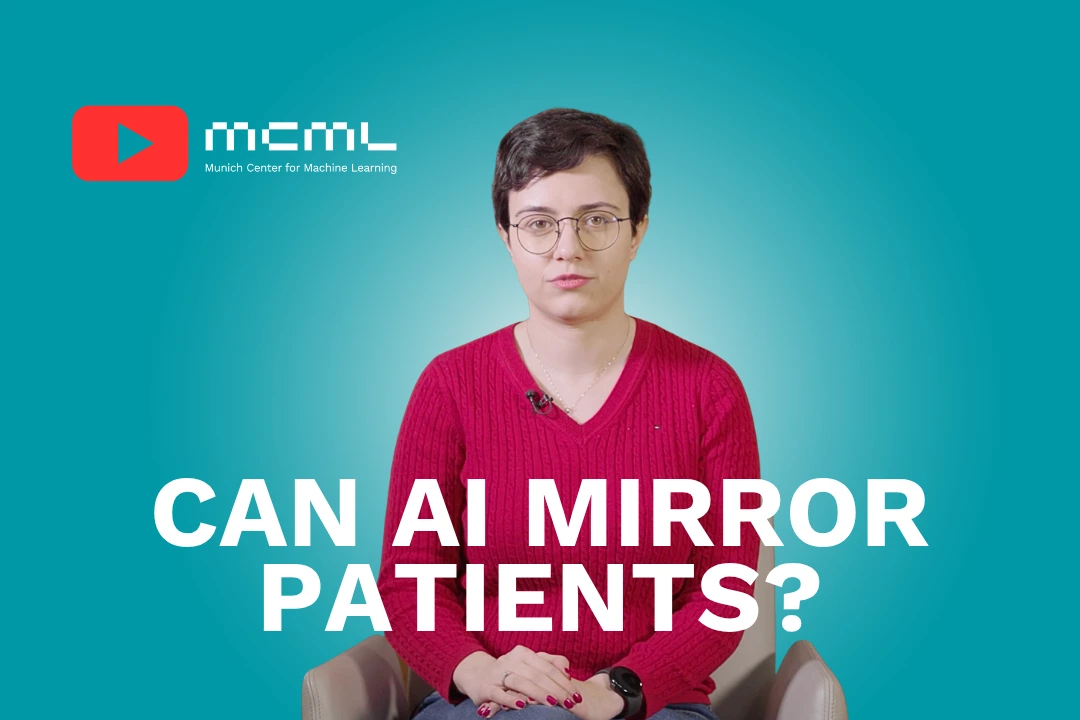
18.08.2025
Digital Twins for Surgery - With Researcher Azade Farshad
Research Film
Azade Farshad, MCML Junior Member and PhD student in the research group of Nassir Navab, researches digital twins of patients at TUM and MCML to improve personalized treatment, surgical planning, and …
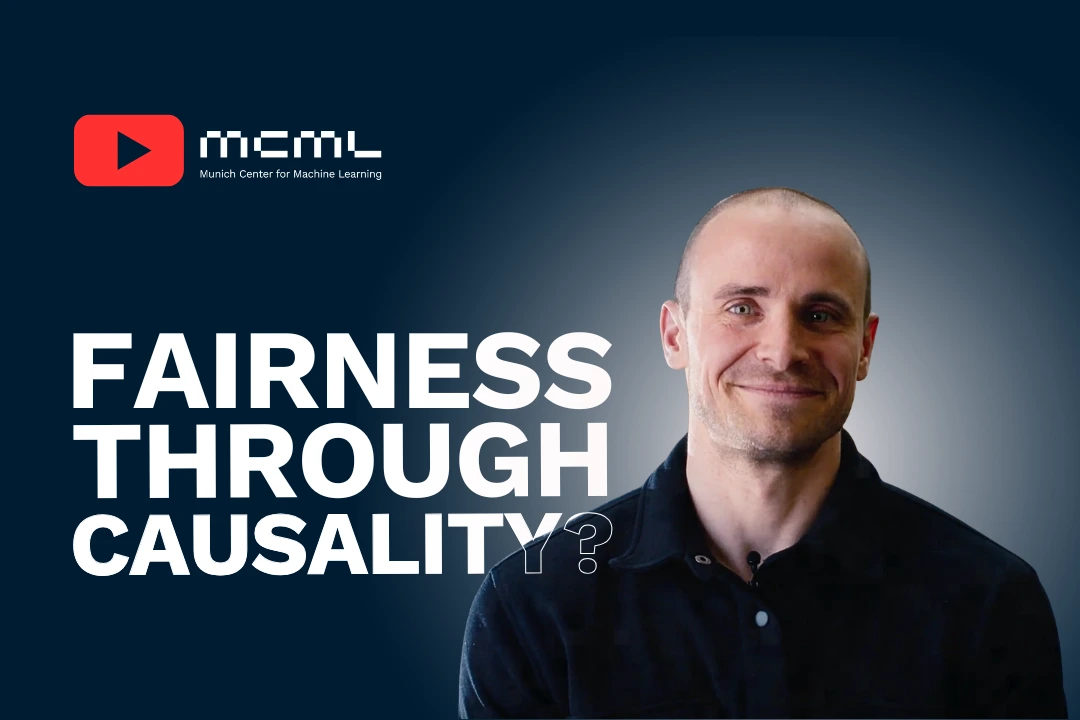
13.08.2025
From Physics Dreams to Algorithm Discovery - With Niki Kilbertus
Research Film
As a kid, Niki Kilbertus dreamed of becoming a theoretical physicist and discovering a fundamental law of nature. But when reality proved more complex, he found a new path through computer science.
2024-11-22 - Last modified: 2026-03-05
